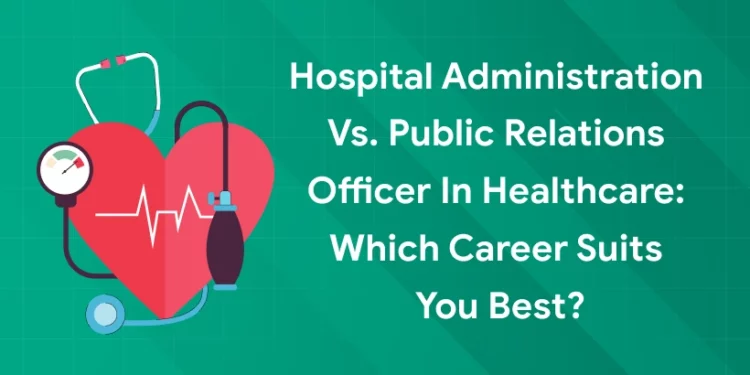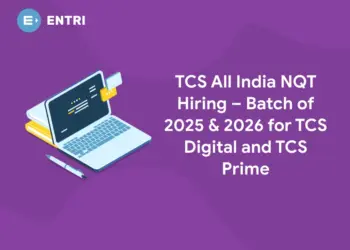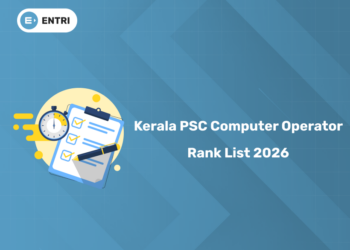Table of Contents
Key Takeaways:
- Hospital Administration and Public Relations Officer (PRO) roles serve different but essential functions within healthcare environments.
- Hospital Administrators focus on overseeing operations, managing resources, compliance, and improving patient care quality.
- PROs manage communication, media relations, patient interaction, and maintain the hospital’s public image.
- Both careers require distinct skill sets: leadership and organizational skills for administrators; communication and interpersonal skills for PROs.
- Understanding these differences helps you choose a career path that aligns with your interests, strengths, and long-term goals.
Introduction: Choosing Between Hospital Administration and Public Relations in Healthcare
Healthcare is one of the fastest-growing and most essential industries worldwide. Behind every hospital’s smooth operation and trusted reputation are professionals who work tirelessly to manage the complexities involved. If you’re contemplating a career in healthcare beyond clinical roles, you’re likely considering either hospital administration or a Public Relations Officer (PRO) position. Both play vital roles but cater to different interests and skills.
Hospital administration revolves around the core management of hospital services, focusing on patient care efficiency, staff coordination, and regulatory compliance. The Public Relations Officer, on the other hand, is the hospital’s face to the public, responsible for communication, reputation management, and engaging with media and patients alike. Understanding these differences can help you align your career goals with your strengths and passions.
What Does a Hospital Administrator Do?
1: What is the primary role of a hospital administrator?
Hospital administrators are the backbone of healthcare facilities, ensuring everything runs smoothly behind the scenes. Their core responsibilities include:
-
Managing hospital operations, including departments like nursing, billing, and medical records.
-
Ensuring compliance with healthcare laws, quality standards, and safety protocols.
-
Handling budgeting, finance, staffing, and resource allocation.
-
Coordinating between medical staff, support staff, and external stakeholders.
-
Improving patient care services through strategic planning and quality management.
-
Overseeing technology implementation, such as hospital information systems.
-
Reporting to senior management and government bodies about hospital performance.
Skills Essential for Hospital Administrators
-
Strong leadership and decision-making abilities.
-
Excellent organizational and multitasking skills.
-
Knowledge of healthcare regulations and hospital policies.
-
Financial acumen and budgeting capabilities.
-
Ability to handle patient complaints empathetically.
-
Familiarity with hospital software and IT systems.
Read more at: Responsibilities of Hospital Administrators
Hospital Administration Course with Assured Career Growth
Hospital Administration Course by Entri App: Master essential healthcare management skills, gain certification, and secure top roles in leading hospitals
Join Now!What Does a Public Relations Officer (PRO) in Healthcare Do?
Public Relations Officers in healthcare are key communicators between the hospital and the public. Their tasks typically include:
-
Managing hospital’s public image and media relations.
-
Organizing press releases, conferences, and social media campaigns.
-
Handling patient and community communications and feedback.
-
Coordinating health awareness events and campaigns.
-
Acting as a liaison between hospital management and patients.
-
Addressing concerns and responding to public queries in a diplomatic manner.
-
Building and maintaining networks with media and community leaders.
Skills Essential for PROs
-
Excellent verbal and written communication.
-
Strong interpersonal and networking skills.
-
Public speaking and presentation abilities.
-
Crisis management and tactful problem-solving.
-
Understanding of social media and digital communication.
-
Ability to simplify complex medical information for the public.
Learn more at Who is a PRO in a Hospital? Roles and Responsibilities
Hospital Administration vs. Public Relations Officer: A Clear Comparison
Choosing between hospital administration and public relations roles in healthcare can be challenging since both contribute critically to a hospital’s success but through very different approaches. The following table breaks down the core differences to help you understand each role better and decide which path aligns with your skills and interests.
| Aspect | Hospital Administration | Public Relations Officer (PRO) |
|---|---|---|
| Primary Focus | Managing hospital operations & healthcare delivery | Managing hospital’s public image & communication |
| Key Responsibilities | Planning, budgeting, staffing, regulatory compliance, and patient care quality | Media relations, press releases, community engagement, reputation management |
| Work Environment | Behind-the-scenes, coordinating departments | Front-facing, liaison between hospital and public |
| Skills Required | Leadership, organizational, healthcare knowledge, financial management | Communication, networking, crisis management, public speaking |
| Interactions | Physicians, nurses, administrative staff, regulators | Media personnel, patients, community stakeholders |
| Goals | Operational efficiency and patient satisfaction | Positive public perception and community trust |
| Tools Used | Hospital information systems, ERP, financial software | Social media, PR tools, event management platforms |
| Career Path | Opportunities in senior management and healthcare policy | Opportunities in marketing, communications, advocacy |
Educational Pathways and Certifications Needed
Choosing the right educational path is a vital step toward building a successful career in either hospital administration or as a Public Relations Officer (PRO) in healthcare. Each role has its preferred qualifications and certifications that not only bolster your resume but also equip you with essential knowledge and confidence.
For Hospital Administration:
-
A bachelor’s degree in hospital administration, healthcare management, business administration, or related fields is typically the baseline requirement.
-
Postgraduate degrees like an MBA with a focus on healthcare management can significantly improve career prospects and open doors to senior leadership roles.
-
Practical certifications make a difference. Entri’s Hospital Administration course is a perfect example—it offers hands-on training on healthcare systems, hospital operations, financial management, and regulatory compliance, tailored specifically for emerging healthcare professionals.
-
Other valuable certifications might include diplomas or certificates in health information management, quality assurance, or patient safety. These deepen your understanding of hospital processes and compliance requirements.
For Public Relations Officer (PRO) in Healthcare:
-
A degree in communications, public relations, journalism, or marketing is often preferred. Some healthcare knowledge or experience is an added advantage, especially in hospitals.
-
Certifications in public relations, digital marketing, or media communication can enhance your skills. Courses on crisis communication and social media strategies are particularly relevant today.
-
While formal healthcare management education isn’t mandatory for PROs, understanding healthcare terminology and regulations through online courses or workshops will help you communicate more effectively and confidently.
-
Soft skills training in empathy, negotiation, and conflict resolution also boosts your effectiveness as a PRO.
By pursuing the right education and certifications, you lay a strong foundation that employers recognize and value, helping you advance steadily, whether in hospital administration or healthcare public relations.
Learn more: Hospital PRO Salary in India
Hospital Administration Course with Assured Career Growth
Hospital Administration Course by Entri App: Master essential healthcare management skills, gain certification, and secure top roles in leading hospitals
Join Now!Typical Day-in-the-Life: Hospital Administrator vs. Public Relations Officer (PRO)
| Aspect | Hospital Administrator | Public Relations Officer (PRO) |
|---|---|---|
| Daily Focus | Overseeing hospital operations and administration | Managing hospital image and public communication |
| Key Activities | Reviewing reports, coordinating departments, budgeting, staff management, ensuring compliance | Drafting press releases, media liaison, patient communication, organizing events |
| Interaction Level | Primarily internal—working with medical staff, admin teams, regulators | Primarily external—engaging with media, community, patients |
| Work Style | Analytical, strategic, multitasking behind the scenes | Communicative, public-facing, event-driven |
| Problem Solving | Operational challenges, resource allocation, staff issues | Crisis communication, public perception management |
| Tools and Systems | Hospital info systems, ERP, financial software | Social media platforms, PR software, communication tools |
| End Goal | Operational efficiency, quality patient care | Positive public image, community trust |
Read in detail:
How to Become a Hospital Administrator: A Step-by-Step Guide
How to Become a Public Relations Officer in a Hospital
How to Choose the Best Fit: Tips to Decide
Selecting between a career in hospital administration and working as a Public Relations Officer (PRO) in healthcare depends largely on your personal interests, skills, and professional goals. It’s important to reflect on what motivates and energizes you day-to-day because both roles demand different strengths and work styles. Here are some pointers to help you decide:
-
Identify Your Strengths and Interests
Do you find satisfaction in organizing, problem-solving, and overseeing operations, or do you thrive in communicating with people and managing public perception? Hospital administration suits those who enjoy structure, strategic planning, and managing healthcare systems, while PRO roles are ideal for those who love engaging with the public, media, and branding.
-
Consider Your Preferred Work Environment
Hospital administrators often work behind the scenes, coordinating various departments and ensuring policies and procedures are followed. On the other hand, PROs are more visible and outward-facing, representing the hospital in community events or media interactions. If you enjoy frontline interaction and crafting messages, PRO could be your calling.
-
Evaluate Your Communication Style
Both roles require communication, but the nature differs. Administrators often communicate internally within hospital teams, balancing technical details and management goals. PROs focus on clear, persuasive, and empathetic communication to the public, media, and stakeholders, requiring tact and diplomacy.
-
Think About Long-Term Career Goals
Do you aspire to lead hospital operations, influence healthcare policies, or drive quality improvement? Hospital administration offers a direct path toward senior leadership roles. If you are passionate about shaping the hospital’s image, crisis communication, or public engagement, a career as a PRO may provide exciting opportunities in marketing, outreach, and advocacy.
-
Reflect on Your Educational and Skill Background
Are you equipped with or willing to develop management and healthcare knowledge? Hospital administration typically requires familiarity with healthcare systems, finance, and policies. Meanwhile, PRO roles demand skills in public relations, media handling, and digital communication.
-
Assess Your Stress and Crisis Management Ability
Both roles can involve high pressure: hospital admins manage logistical and operational crises, while PROs handle public relations crises that can affect the hospital’s reputation. Think about which type of challenge suits you better.
Entri’s Hospital Administration Course: Why It’s a Great Choice
If managing healthcare operations excites you, Entri’s Hospital Administration course is designed to build the skills employers seek. Through this course, you will:
-
Master hospital management, healthcare systems, and quality assurance.
-
Learn healthcare terminology, medical records, and insurance basics.
-
Gain hands-on experience with hospital software and IT tools.
-
Understand budgeting, finance, and human resource management in hospitals.
-
Get certified and supported with career guidance for fast-track job placements.
This course is perfect for those who want a rewarding career in healthcare management with solid growth prospects.
Conclusion: Ready to Build Your Healthcare Career?
Both Hospital Administration and Public Relations Officer roles are vital in healthcare, offering meaningful and challenging careers. Your choice depends on where your passion and skills lie — managing hospital operations or shaping a hospital’s public image. For those leaning towards healthcare management, Entri’s Hospital Administration course equips you with practical knowledge and career support to get started swiftly and confidently. Explore the course today and open doors to a future in healthcare leadership!
| Also Read | |
| How to Become a Hospital Administrator | |
| Top Skills Needed for a Successful Career in Hospital Administration | |
| Career Pathways in Hospital and Healthcare Administration |
Hospital Administration Course with Assured Career Growth
Hospital Administration Course by Entri App: Master essential healthcare management skills, gain certification, and secure top roles in leading hospitals
Join Now!Frequently Asked Questions
What is the primary role of a hospital administrator?
Hospital administrators manage the day-to-day operations of healthcare facilities, including staffing, budgeting, compliance with healthcare regulations, and ensuring efficient patient care.
What does a Public Relations Officer (PRO) in healthcare do?
A PRO handles the hospital’s communication with the public and media, manages reputational issues, organizes public relations campaigns, and serves as a liaison between the hospital and patients.
Do I need a medical background to become a hospital administrator or PRO?
No medical degree is necessary. However, hospital administrators benefit from knowledge in healthcare management, while PROs gain from communications or PR-related education combined with basic healthcare awareness.
Which job requires better communication skills?
Both require communication skills, but PROs must excel in public speaking, media liaison, and managing patient relations, whereas administrators focus more on internal communication and leadership.
What are the career growth prospects in hospital administration and PRO roles?
Hospital administration offers pathways to senior management, operations director, or healthcare policy roles. PROs can advance to senior communications positions, corporate affairs, or marketing leadership roles.
Can I switch between hospital administration and PRO roles?
Transitioning is possible but often requires additional training, especially in the new role’s core competencies like public relations skills for administrators or management knowledge for PROs.
What skills are most valued in hospital administration?
Leadership, strategic planning, financial acumen, healthcare laws knowledge, staff management, and problem-solving skills.
What skills are essential for a successful PRO?
Strong verbal and written communication, crisis management, networking, empathy, social media proficiency, and event coordination skills.
Are there certifications or courses recommended for these careers?
Certifications in healthcare management, hospital administration, public relations, or communications improve job prospects and effectiveness.
















